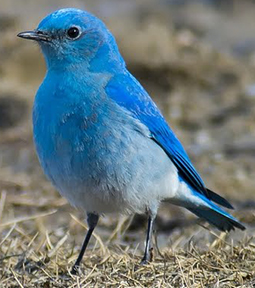Do you remember learning in school about the use of canaries in coal mines to detect gas and save the miners from the silent death of methane or carbon monoxide poisoning? The lungs of Canaries, like all birds, are so fragile that they would die very quickly when exposed to the gas and their death served as a warning to the miners to evacuate.
Today, our bees are giving us a similar warning, but is anyone listening? Can the same toxins that are killing bees do harm to our Parrots?
Scientists are now agreeing with naturalists, holistic health and naturopath professionals that genetically modified crop seeds are directly affecting the bee population. The main ingredient in most bird pellets is corn and soya, two crops that are nearly all genetically modified in North America. But do you know that there is another more dangerous cause to the depleting bee population? Over the past several years there has been a significant increase in the use of Neonicotinoids, a derivative of nicotine. It is thought to be a better choice from a human perspective because it has lower toxicity in mammals than insects. However; we are learning that this insecticide is not only contributing to bee colony collapse disorder but also the death of thousands of wild bird that eat the treated or contaminated seed.
Neonicotinoids were first developed in the 1980’s and 1990’s. By 2008 they represented 24% of insecticides used in the world and made up 80% of all seed treatment. Neonicotinoids, like nicotine, bind to (nicotinic acetylcholine) neuroreceptors in the central and peripheral nervous systems. While low to moderate activation of these receptors causes nervous stimulation, high levels over stimulate and block the receptors, causing paralysis and death in insects and wild birds.
Neonicotinoid insecticides were hastily approved without adequate research. Several organizations1 have opposed its use, making recommendations to ban its use. Some of the insecticides have already been banned from use in various European countries2. Unfortunately, neonicotinoid insecticides continue to be used throughout North American on crop seeds.
Wild birds are at risk. A study done by the American Bird Conservancy states “In conclusion, given the high variability and lack of control regulators that manufacturers have on the methods of application at planting (field conditions, equipment, calibration, etc.), it should be assumed that unlimited quantities of treated seed will be available to foraging birds”.
A single corn kernel coated with a neonicotinoid can kill a songbird. Even a tiny grain of wheat or canola treated with the oldest neonicotinoid, imidacloprid, can poison a bird.3
There is a slim chance of toxic seeds being used in bird food. Given that there are no regulations, we recommend staying with well known brands and reputable companies that make a conscious effort to ensure birds are safe. Above all, reduce the risk of contaminants by staying clear of no name brands. You can make healthy choices for not just your companion Parrots but also the wild birds visiting your garden by choosing products that are free of GMO ingredients.
You can also do your part by taking an active role and signing the petitions at these links:
Save Ontario's bees: ban the use of neonicotinoid insecticides,
Ban Neonicotinoids to the Government of Canada and,
Ask big retailers to stop selling the poison that is killing the bees.
Our weekly Blog promotion offers FREE SHIPPING on regular priced purchases over $65 with individual weights of 3 lbs or less. We will adjust your invoice before charging your credit card. Simply enter coupon BLOG0528 in the Discount box at the checkout. Our in store promotion is a free Parrots Magazine with the purchase of $65 or more. No coupon is necessary, simple ask for a magazine.
References:
The Impact of the Nation’s Most Widely Used Insecticides on Birds http://www.abcbirds.org/abcprograms/policy/toxins/Neonic_FINAL.pdf
1 Natural News http://www.naturalnews.com/041037_bee_pollinators_neonicotinoids_pesticide_ban.html#
2 The Independent http://www.independent.co.uk/environment/nature/victory-for-bees-as-european-union-bans-neonicotinoid-pesticides-blamed-for-destroying-bee-population-8595408.html
3 American Bird Conservancy http://www.abcbirds.org/newsandreports/releases/130501.html

